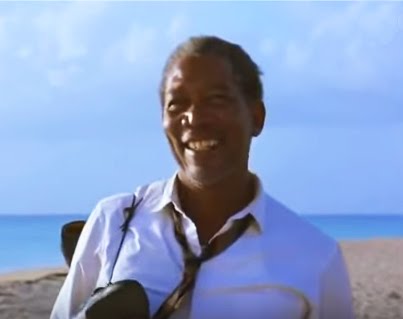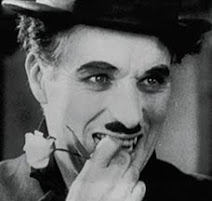And Straight On 'Till Morning
Leonard Nimoy 1931 - 2015
Not all that many people affect a wider world; the number that have a positive influence are even smaller.
El Rog (that's pronounced "Raj") The Magnificent at my Place Of Witless Labor™ spoke over the Great Wall Of Cubicle a while ago and advised Leonard Nimoy has died. The visual image which immediately popped into my mind was the character he made immortal, Spock, as he'd appeared in the first JJ Abrams reboot of the Star Trek franchise, and so my first thought was Spock, dead? No; that's not possible. It took a few seconds to remember Nimoy in any other way, and then the news seemed not only possible but not unexpected. Now He Knows What We Do Not.
As Lynda Barry tells it, television was role model, teacher, and refuge for several generations. It was all those for me, and due to an odd twist of pre-frontal cortex which allows me to recall the complete dialogue of specific films nearly intact, I would remember the faces of character actors who appeared in films and different television series (which would lead to posts like this, and this, and this one).
I watched Star Trek when it was new in 1966, and a new concept for television -- a science fiction episodic television program (the audience could 'get involved' with the lives of its characters, and their relationship with each other, to create a backstory to support the arc of the series). It's true that 'The Twilight Zone' had appeared in 1959, and One Step Beyond not long after; then "Outer Limits" in 1964, but each of their episodes were separate presentations, a series of short stories.
Star Trek was the first of its kind, and it made all the other series that followed, Star Trek-related or not, possible -- ST Next Generation; ST Deep Space Nine; ST Voyager; Starship Enterprise; Babylon 5; Stargate; Battlestar Galactica (original, and the remake); Space 1999; even the Saturday morning Thunderbirds! marionette series.
It also made possible a long string of other sci-fi and fantasy-related programs that we take for granted, today, from X-Files and Roswell to the SciFi Channel.
The crew of the NCC 1701 were a family, and Leonard Nimoy's rendition of the science officer and XO was spot on, right from the beginning; I can't imagine another actor in 1966 who could have brought more to the role (Try and imagine it. Go ahead). The series was a popular success, but even with a large write-in campaign from fans, NBC cancelled it; episodes in the spring of 1968 were the last.
In the1970's Nimoy joined the cast of Mission: Impossible, replacing Martin Landau (who ended up as the star of -- yes; 'Space 1999', with his MI co-star and then-wife, Barbara Bain). When Star Trek's creator, Gene Roddenberry, finally received financial backing to produce "Star Trek: The Motion Picture", Nimoy returned to his Spock role. But, the movie had a poor showing when it was released in 1979 and for a time it wasn't clear whether there would be any sequels. Nimoy began looking for other ways to reinvent his career -- as a writer, an artist, as a stage actor.
Four years later, with a different director and script, The Wrath Of Khan (with another decent character actor, Ricardo Montalban) appeared, and was a success -- even when the unexpected happened; Spock sacrifices himself to save his ship, its crew, and the officers on it that were his family.
There would be another four star Trek films with the original cast -- two of them written, and directed, by Nimoy. In 1987, he directed Three Men and A Baby for Disney Studios -- a big hit, financially. Nimoy continued directing other productions until 1995.
Over the last twenty years, Nimoy had been candid that as a person, it hadn't all been a bed of roses; he had suffered with an alcohol addiction since the late 1960's, but had conquered it. Even as he grew older he continued to do what he did best, to act -- his appearance as the reclusive Dr. Bell on the series, Fringe, and reprising Spock in the 2012 Star Trek reboot, were his last hurrahs as an actor.
Through the original series and the motion pictures, Spock's character was about resolving inner conflict, the Path Of Logic versus human instincts. But Nimoy's character, which he did a good deal to shape, was also about loyalty, compassion, and Right Action.
For generations of people who grew up watching Nimoy as Spock, the character showed a bridge between our illogical selves and Something Larger, in a positive way. The planet Vulcan may not exist, but that there might be a choice between instinctive or unconscious behavior, and some level of clarity achieved through discipline, does. No matter how that is internalized, it's a powerful message.
And, it's not a stretch to say that Nimoy's role as (arguably) Star Trek's most popular character helped to popularize science fiction on television. This was different from the B-Film sci-fi that was churned out in the 50's and 60's -- it made science fiction acceptable as a dramatic form, The Human Dilemma in the vast reaches of space. Without Trek on television and in film, there might have been a very different and less nuanced 'Star Wars' (all six of them), or Blade Runner, Alien, or "Interstellar".
So, another Mensch leaves us -- I hope, for another continuing adventure.
Leonard Nimoy 1931 - 2015
Not all that many people affect a wider world; the number that have a positive influence are even smaller.
El Rog (that's pronounced "Raj") The Magnificent at my Place Of Witless Labor™ spoke over the Great Wall Of Cubicle a while ago and advised Leonard Nimoy has died. The visual image which immediately popped into my mind was the character he made immortal, Spock, as he'd appeared in the first JJ Abrams reboot of the Star Trek franchise, and so my first thought was Spock, dead? No; that's not possible. It took a few seconds to remember Nimoy in any other way, and then the news seemed not only possible but not unexpected. Now He Knows What We Do Not.
As Lynda Barry tells it, television was role model, teacher, and refuge for several generations. It was all those for me, and due to an odd twist of pre-frontal cortex which allows me to recall the complete dialogue of specific films nearly intact, I would remember the faces of character actors who appeared in films and different television series (which would lead to posts like this, and this, and this one).
I watched Star Trek when it was new in 1966, and a new concept for television -- a science fiction episodic television program (the audience could 'get involved' with the lives of its characters, and their relationship with each other, to create a backstory to support the arc of the series). It's true that 'The Twilight Zone' had appeared in 1959, and One Step Beyond not long after; then "Outer Limits" in 1964, but each of their episodes were separate presentations, a series of short stories.
Star Trek was the first of its kind, and it made all the other series that followed, Star Trek-related or not, possible -- ST Next Generation; ST Deep Space Nine; ST Voyager; Starship Enterprise; Babylon 5; Stargate; Battlestar Galactica (original, and the remake); Space 1999; even the Saturday morning Thunderbirds! marionette series.
It also made possible a long string of other sci-fi and fantasy-related programs that we take for granted, today, from X-Files and Roswell to the SciFi Channel.
The crew of the NCC 1701 were a family, and Leonard Nimoy's rendition of the science officer and XO was spot on, right from the beginning; I can't imagine another actor in 1966 who could have brought more to the role (Try and imagine it. Go ahead). The series was a popular success, but even with a large write-in campaign from fans, NBC cancelled it; episodes in the spring of 1968 were the last.
In the1970's Nimoy joined the cast of Mission: Impossible, replacing Martin Landau (who ended up as the star of -- yes; 'Space 1999', with his MI co-star and then-wife, Barbara Bain). When Star Trek's creator, Gene Roddenberry, finally received financial backing to produce "Star Trek: The Motion Picture", Nimoy returned to his Spock role. But, the movie had a poor showing when it was released in 1979 and for a time it wasn't clear whether there would be any sequels. Nimoy began looking for other ways to reinvent his career -- as a writer, an artist, as a stage actor.
Four years later, with a different director and script, The Wrath Of Khan (with another decent character actor, Ricardo Montalban) appeared, and was a success -- even when the unexpected happened; Spock sacrifices himself to save his ship, its crew, and the officers on it that were his family.
"I was, and always shall be, your friend." If you saw the film when it was released,
tell me you didn't
feel just a little misty when he spoke that line.
There would be another four star Trek films with the original cast -- two of them written, and directed, by Nimoy. In 1987, he directed Three Men and A Baby for Disney Studios -- a big hit, financially. Nimoy continued directing other productions until 1995.
Over the last twenty years, Nimoy had been candid that as a person, it hadn't all been a bed of roses; he had suffered with an alcohol addiction since the late 1960's, but had conquered it. Even as he grew older he continued to do what he did best, to act -- his appearance as the reclusive Dr. Bell on the series, Fringe, and reprising Spock in the 2012 Star Trek reboot, were his last hurrahs as an actor.
Nimoy and Zachary Quinto at the opening of Abram's Star Trek (2012)
Through the original series and the motion pictures, Spock's character was about resolving inner conflict, the Path Of Logic versus human instincts. But Nimoy's character, which he did a good deal to shape, was also about loyalty, compassion, and Right Action.
For generations of people who grew up watching Nimoy as Spock, the character showed a bridge between our illogical selves and Something Larger, in a positive way. The planet Vulcan may not exist, but that there might be a choice between instinctive or unconscious behavior, and some level of clarity achieved through discipline, does. No matter how that is internalized, it's a powerful message.
And, it's not a stretch to say that Nimoy's role as (arguably) Star Trek's most popular character helped to popularize science fiction on television. This was different from the B-Film sci-fi that was churned out in the 50's and 60's -- it made science fiction acceptable as a dramatic form, The Human Dilemma in the vast reaches of space. Without Trek on television and in film, there might have been a very different and less nuanced 'Star Wars' (all six of them), or Blade Runner, Alien, or "Interstellar".
So, another Mensch leaves us -- I hope, for another continuing adventure.
Kirk: I think its about time we got underway ourselves.
Uhura: Captain, I have orders from Starfleet Command. We're to put back to Spacedock immediately ... to be decommissioned.
Spock: If I were human, I believe my response would be, "go to Hell" -- if I were human.
Uhura: What are your orders, sir?.
Kirk: Second star on the right -- and straight on 'till morning.
________________________________________________________________







No comments:
Post a Comment